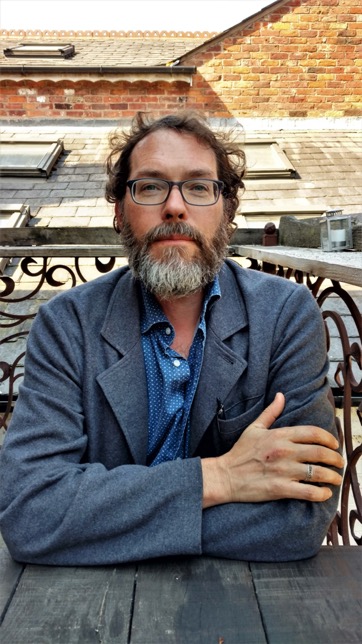Takeaway
When half of clinicians are burned out, we clearly need to fix our workplaces. In the meantime, we also need to care for ourselves, our patients, and each other.

Lifelong learning in clinical excellence | April 28, 2021 | 4 min read
By David Kopacz, MD, University of Washington
“Every system is perfectly designed to get the results it gets,”—W. Edwards Deming
“An abnormal reaction to an abnormal situation is normal behavior.”—Victor Frankl
“Many believe burnout to be the result of individual weakness when, in fact, burnout is primarily the result of health care systems that take emotionally healthy, altruistic people and methodically squeeze the vitality and passion out of them.— Swenson and Shanafelt, Mayo Clinic Strategies to Reduce Burnout: 12 Actions to Create the Ideal Workplace
If every system is perfectly designed to get the results it gets, then many healthcare systems around the world are designed to create high levels of burnout and compassion fatigue in the people who work within them. Maybe burnout isn’t a lack of resilience or coping skills in clinicians, but an iatrogenic effect of modern healthcare.
Self-care, alone, isn’t going to change the negative social determinants of clinician health in the systems within which we struggle to care for ourselves while giving care to others. I don’t mean to be disrespectful of the populations suffering from social determinants of health, but rather, to take a look at the healthcare ecosystems within which we work. Being kept for long hours in a windowless box, unable to control the temperature, without access to nature, natural light, or fresh air; being forced to sit for long periods of time while staring at a suffering-inducing electronic box while being continually interrupted by multiple streams of electronic information while trying to translate a human being’s suffering into the little suffering-inducing box; being told explicitly or implicitly that you, as a human being, and the patient, as a human being, don’t matter; that what matters is information extraction, information input, system processing, object throughput, and productivity. And that you are fully replaceable by another processing unit; being told you cannot have access to food or water while you are in your processing unit. All of this is dehumanizing to clinicians, staff, and patients. Psychoanalyst Robert Stoller pointed out that the act of dehumanizing another “dehumanizes the dehumanizer.” As depersonalization (dehumanization) is part of the burnout triad, you can say that we not only have a burnout problem in medicine, we have a dehumanization problem in that the system slowly leaches away the souls of those who work within it.
I’ve written about the need to go beyond resilience in addressing healthcare professionals’ burnout and moral injury. Taking a week off might help get someone back on the frontlines of healthcare for a while longer, but how can we transform the healthcare system itself? (Trzeciak and Mazzarelli describe many of the ways we approach burnout as “escapism,” withdrawing from our jobs instead of “leaning in” to do our work with more compassion.)
When half of clinicians are burned out, we need to fix the system that causes burnout. We shouldn’t shift the burden of responsibility onto the individual to do more self-care in their free time so they are more “resilient” at work. We need to work on system transformation. We are the canaries in the coal mine in an unhealthy environment. We need to create compassionate, health-promoting workplaces. We need to transform healthcare and remember what it means to truly care: for ourselves, for our patients, and for each other. In my first book, “Re-humanizing Medicine,” I called for clinicians and institutions to join the compassion revolution, to work to bring caring back into healthcare. Trzeciak and Mazzarelli, in their book, “Compassionomics,” call for creating a “culture of compassion,” citing their findings that compassion is protective against burnout. After reviewing over 1,000 abstracts and 250 studies they conclude that, “Compassion matters: for patients, for patient care, and for those who care for patients.” Yet, compassion isn’t something that can be always expected from healthcare professionals on top of all the other demands that institutions place upon them. This is why Danielle Ofri warns, “The Business of Health Care Depends on Exploiting Doctors and Nurses One resource seems infinite and free: the professionalism of caregivers.” And Swensen and Shanafelt conclude that “organizations must begin by addressing the system issues under their control before engaging individual professionals in the shared responsibility of caring for themselves.”
Business consultans Schwartz, Gomes, and McCarthy recommend the following re-frame in their book, “The Way We Are Working Isn’t Working:” “‘How can we get more out of our people?’ leaders regularly ask us. We suggest they pose a different question: ‘How can I more intentionally invest in meeting the multi-dimensional needs of my employees so that they’re freed, fueled, and inspired to bring the best of themselves to work each day?’”
It’s time we brought compassion back into the system. Compassion needs to be protected and nurtured as a vital resource, and as such, it is something that needs to be practiced throughout the healthcare system, from CEOs and directors, to clinicians, nurses, allied health, and staff. Let’s create a system that is perfectly designed to create health and well-being in healthcare professionals and patients. Let’s start a compassion revolution.
I offer some books and articles that I’ve found useful:
“The Business of Health Care Depends on Exploiting Doctors and Nurses,” by Danielle Ofri
“The Idealist’s Survival Kit: 75 Simple Ways to Avoid Burnout,” by Alessandra Pigni
Moral Resilience: Transforming Moral Suffering in Healthcare,” by Cynda Hylton Rushton
“Wintering: The Power of Rest and Retreat in Difficult Times,” by Katherine May
“A Blessing in Disguise, 39 Life Lessons from Today’s Greatest Teachers,” by Andrea Joy Cohen
This piece expresses the views solely of the author. It does not represent the views of any organization, including Johns Hopkins Medicine.

